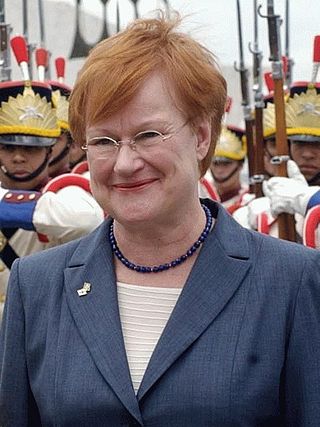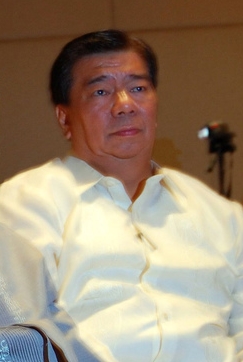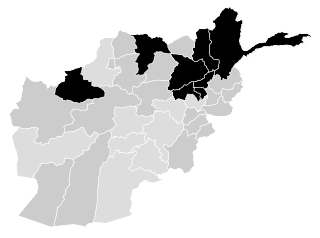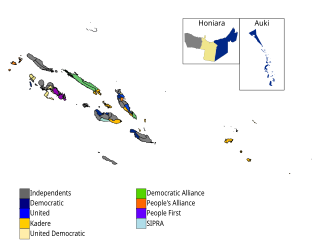An opinion poll, often simply referred to as a survey or a poll, is a human research survey of public opinion from a particular sample. Opinion polls are usually designed to represent the opinions of a population by conducting a series of questions and then extrapolating generalities in ratio or within confidence intervals. A person who conducts polls is referred to as a pollster.

New Zealand is a representative democracy in which members of the unicameral New Zealand Parliament gain their seats through elections. General elections are usually held every three years; they may be held at an earlier date at the discretion of the prime minister, but that usually only happens in the event of a vote of no confidence or other exceptional circumstances. A by-election is held to fill an electorate vacancy arising during a parliamentary term. The most recent general election took place on 14 October 2023.
An election exit poll is a poll of voters taken immediately after they have exited the polling stations. A similar poll conducted before actual voters have voted is called an entrance poll. Pollsters – usually private companies working for newspapers or broadcasters – conduct exit polls to gain an early indication as to how an election has turned out, as in many elections the actual result may take many hours to count.
Regular elections in Croatia are mandated by the Constitution and legislation enacted by Parliament. The presidency, Parliament, county prefects and assemblies, city and town mayors, and city and municipal councils are all elective offices. Since 1990, seven presidential elections have been held. During the same period, ten parliamentary elections were also held. In addition, there were nine nationwide local elections. Croatia has also held three elections to elect members of the European Parliament following its accession to the EU on 1 July 2013.

Voter suppression is a strategy used to influence the outcome of an election by discouraging or preventing specific groups of people from voting. It is distinguished from political campaigning in that campaigning attempts to change likely voting behavior by changing the opinions of potential voters through persuasion and organization, activating otherwise inactive voters, or registering new supporters. Voter suppression, instead, attempts to gain an advantage by reducing the turnout of certain voters. Suppression is an anti-democratic tactic associated with authoritarianism.
Electoral-vote.com is a website created by computer scientist Andrew S. Tanenbaum. The site's primary content was originally poll analysis to project election outcomes. Since the 2016 elections, the site also has featured daily commentary on political news stories.
Early voting, also called advance polling or pre-poll voting, is a convenience voting process by which voters in a public election can vote before a scheduled election day. Early voting can take place remotely, such as via postal voting, or in person, usually in designated early voting polling stations. The availability and time periods for early voting vary among jurisdictions and types of election. The goals of early voting are usually to increase voter participation, relieve congestion at polling stations on election day, and avoid possible discrimination against people with work and travel schedules that may effectively prohibit them from getting to the polls during the hours provided in a single election day.
India has a parliamentary system as defined by its constitution, with power distributed between the union government and the states. India's democracy is the largest democracy in the world.

Elections in Lithuania are held to select members of the parliament, the president, members of the municipal councils and mayors, as well as delegates to the European Parliament. Lithuanian citizens can also vote in mandatory or consultative referendums.

Presidential elections were held in Finland on 15 and 29 January 2006 which resulted in the re-election of Tarja Halonen as President of Finland for a second six-year term.

General elections were held in Mexico on Sunday, 2 July 2006. Voters went to the polls to elect a new President of the Republic to serve a six-year term, replacing then President Vicente Fox ; 500 members of the Chamber of Deputies to serve for three-year terms; and 128 members of the Senate to serve for six-year terms.

General elections in Singapore must be held within three months after five years have elapsed from the date of the first sitting of a particular Parliament of Singapore, as per the Constitution. However, Parliament can also be dissolved and a general election called at the behest of the Prime Minister before the five-year period elapses. The number of constituencies or electoral divisions is not permanently fixed by law, but is declared by the Prime Minister prior to each general election pursuant to the Parliamentary Elections Act, which governs the conduct of elections to Parliament, taking into account recommendations of the Electoral Boundaries Review Committee.

R v Bryan 2007 SCC 12 is a decision by the Supreme Court of Canada on freedom of expression and Canadian federal elections. The Court upheld a law that prevented the publicizing of election results from some ridings before the polls closed in others.

A general election was held in the Philippines on May 13, 2013. It was a midterm election—the officials elected will be sworn in on June 30, 2013, midway through President Benigno Aquino III's term of office.

Presidential elections were held in Afghanistan on 20 August 2009. The election resulted in victory for incumbent Hamid Karzai, who received 49.67% of the vote, while his main rival Abdullah Abdullah finished second with 30.59% of the vote.

Election day or polling day is the day on which general elections are held. In many countries, general elections are always held on a Saturday or Sunday, to enable as many voters as possible to participate; while in other countries elections are always held on a weekday. However, some countries, or regions within a country, which hold elections on a weekday declare election day a public holiday. Countries which permit absentee ballots, early ballots or postal votes to be cast by mail before the election avoid the problem altogether by enabling voters to vote on a day that is more convenient to them.
Section 329 of the Canada Elections Act was designed to prevent the transmission of any election results until polls were closed nationwide. Section 329 stated that:
In the run-up to, during and after the Turkish general election of June 2015, numerous accusations of electoral fraud and violence were made by opposition parties. Electoral fraud in Turkey has usually been most extensive during local elections, where individual votes have significantly larger impact in determining local administrations. Although the 2014 presidential election saw little evidence of electoral misconduct, issues regarding voter records as well as extensive media bias have been controversial issues that have remained largely unaddressed. In both the local and presidential elections in 2014, several voters reported that ballot papers had been sent to addresses that are wrong or do not exist as well as voters that have been dead for a substantial amount of time.
Minnesota Voters Alliance v. Mansky, 585 U.S. ___ (2018), was a landmark decision of the US Supreme Court concerning the constitutionality of governmental speech restrictions in a polling place venue. The case challenged a century-old Minnesota law that prevents voters from wearing clothing or items considered political while voting. While the Supreme Court previously affirmed that political campaigning near polling places may be restricted, the Minnesota law was challenged on being overbroad and violation of free speech rights under the First Amendment. The case's decision was issued on June 14, 2018, with the Court finding 7–2 that the Minnesota law was overbroad of what could be considered "political" speech, violating free speech rights and deemed unconstitutional.

General elections were held in Solomon Islands on 3 April 2019 to determine the composition of the 11th Parliament. The election was the first to occur since the conclusion of the Regional Assistance Mission to the Solomon Islands (RAMSI) in 2017. Parliament passed amendments to the electoral act in 2018 that included the introduction of pre-polling, a significant increase in campaign budgets for candidates and stricter penalties for individuals committing electoral offences such as vote-buying. Ten of the thirteen parties that contested the election won seats, and the Solomon Islands Democratic Party and the Kadere Party were the parties that secured the highest amount, winning eight each. However, as in previous elections, independent candidates won the largest share of seats, securing 21.











